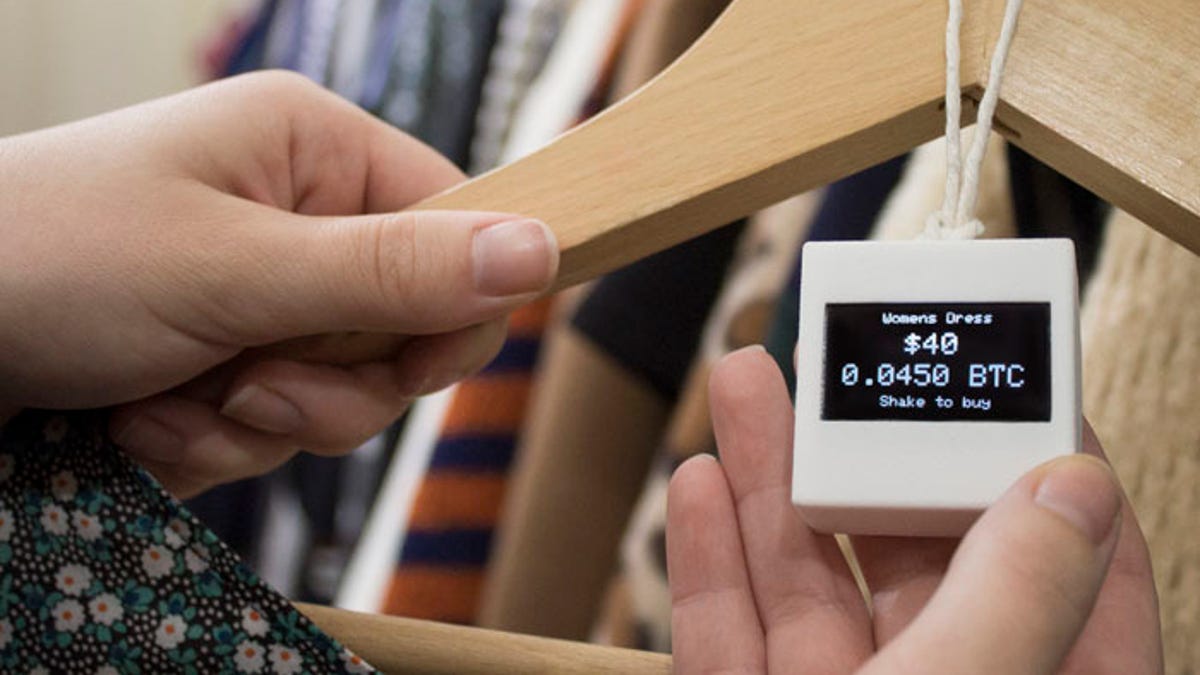Real-world price tag tracks shifting Bitcoin exchange rate
The BitTag price tag wants to make it easier to buy physical goods with cryptocurrency by displaying the real-time exchange rate.

You walk into a store, your virtual wallet full of bitcoins. You see a nice shirt and check the digital price tag dangling from the collar. You know exactly what fraction of a bitcoin it will cost you to buy it. That's the dream of the BitTag, a wireless, constantly self-updating price tag looking to bridge the gap between the virtual and real worlds.
The BitTag is the creation of designer Samuel Cox. He describes BitTag as "a physical price tag for digital currency." Each tag shows the name of the product, the price in local traditional currency, and the price in bitcoins on an OLED display.
Bitcoin is notorious for fluctuations in value. One bitcoin might be worth $750, and a little later it could rocket up to $900. The price tag tracks this and reflects changes as they happen. Of course, this could result in a situation where the price of a product rises (or drops) significantly in the amount of time it takes you to try it on in the dressing room.
The BitTags are designed to work in conjunction with an iPad app. The app is used to set up each tag, and also process the Bitcoin transactions. A buyer can also shake the tag, which displays a QR code that leads to a Bitcoin payment option.
Crossing the bridge between digital and physical worlds is one of Bitcoin's greatest challenges. Gadgets like BitTag could be a big boost to this if they catch on. Right now, a BitTag prototype costs about $65 to make. The price would need to come down considerably to make it a viable investment for businesses.
(Via BBC News)

